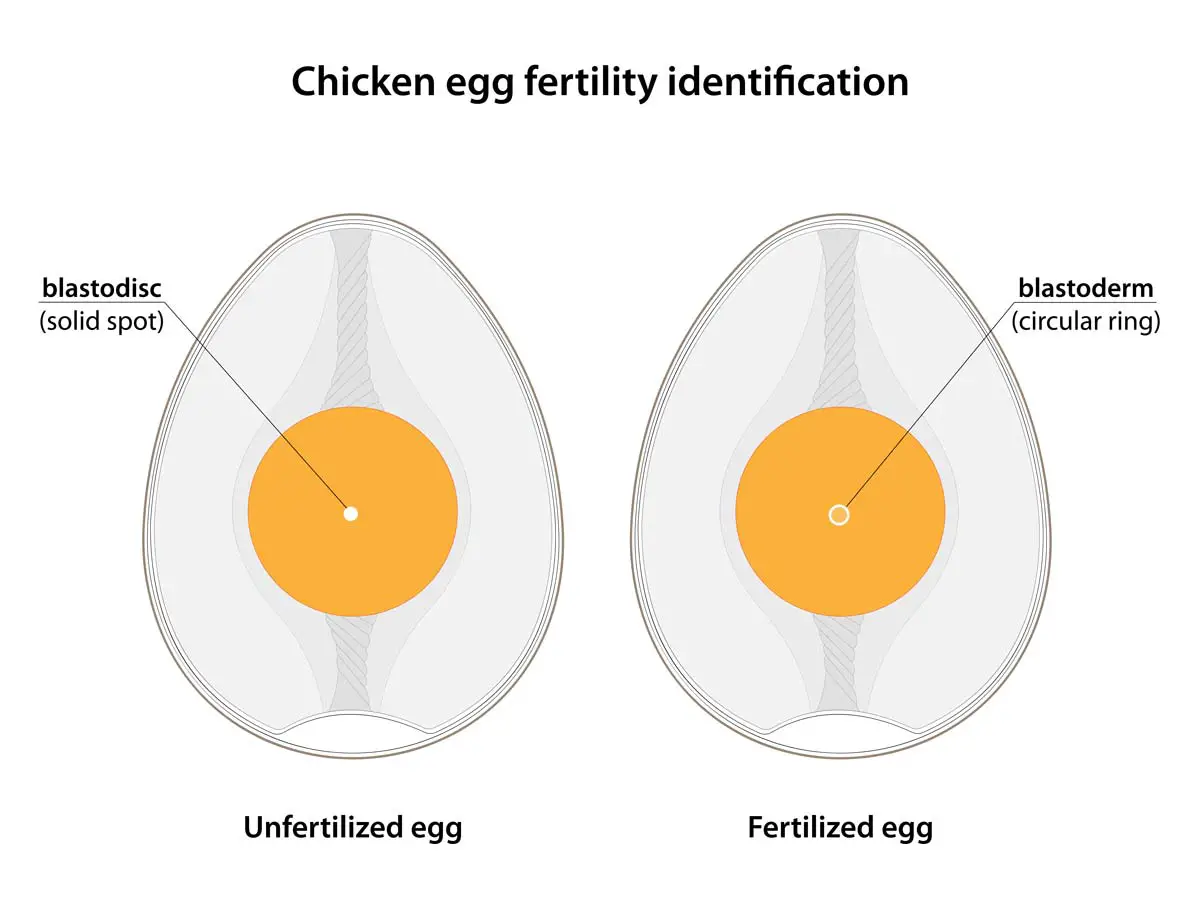Can Fertile Eggs Be Refrigerated? Find out the Answer Here

Fertile eggs are an important part of the food chain for both humans and animals. Many people are concerned about whether it is safe to refrigerate fertilized eggs, which may affect their viability or health. So, can fertile eggs be refrigerated?
No.It is not recommended to refrigerate fertile eggs. It can put the embryo at risk and reduce its chances of hatching successfully or even surviving. If you need to store fertilized eggs for an extended period, keeping them in a cool, dry place away from direct sunlight and extreme temperatures is best.
This article will discuss the best practices for storing fertilized eggs in a refrigerator and provide tips on ensuring they remain safe while being stored.
Can Fertile Eggs Be Refrigerated?
To ensure that fertilized eggs remain viable, it is important to know that refrigeration may not be the best option for storing them. Here is a detailed explanation of the reasons:
Condensation of the Egg’s Surface
Surface condensation can occur when the fertile eggs are stored in a fridge, decreasing the egg’s viability. This is because water forms tiny droplets when it evaporates from the eggshell.
These droplets form an impermeable layer over the shell, blocking out oxygen and preventing gas exchange with the embryo. Without this exchange, the embryo will not be able to develop properly.
Also, the condensation can cause an increase in the moisture of the egg, making it more prone to bacterial growth or fungal infection. As a result, refrigerated fertilized eggs may have reduced chances of surviving and hatching successfully if stored for too long.
Temperature Fluctuations
In a refrigerator, the temperature can fluctuate greatly. This is especially true if items in the fridge need frequent cooling or warming, such as food or drinks.
These temperature changes can affect the egg’s development and viability and decrease its chances of successfully hatching. Therefore, refrigeration should be avoided when storing fertilized eggs.
Tips to Store Fertile Eggs in the Fridge
Although it is not recommended to refrigerate fertilized eggs, some tips can help keep them safe and in good condition if you must store them in a fridge.
These tips include:
Keep the Temperature Between 55- 65°F
Fertile eggs should not be stored in the refrigerator for too long. If you must store them in a fridge, keep the temperature constant and between 55-65°F to ensure that condensation does not occur on the eggshells.
Avoid Refreezing Thawed Fertile Eggs
If you need to thaw refrigerated fertilized eggs before using them, it is important to avoid refreezing them. Freezing fertilized eggs reduces their viability and can decrease the chances of successful hatching. Therefore, use the eggs promptly or discard them once they have been thawed.
Use an Egg Carton or a Container Lined with Paper Towels
You should not place the eggs directly in the fridge as this can cause them to become too cold. Instead, use an egg carton or container lined with paper towels before placing them in the refrigerator. This will help keep them at a safe temperature while being stored.
Spray Lightly with Water
Storage that exceeds two weeks may require spraying the eggs lightly with water before putting them in the refrigerator. The added moisture helps prevent condensation from forming and damaging the shell.

The Best Way to Store Fertile Eggs Safely
The best practice for storing fertile eggs is to keep them at room temperature (ideally between 55-65 °F). If the temperature exceeds 72 °F, the embryo’s development will be abnormal. There is a high embryo mortality rate below 55 °F, as well.
Other tips for storing fertile eggs include:
Away From Sunlight and Heat Sources
The eggs should be stored in a cool and dry place, away from direct sunlight and heat sources. If possible, they should be kept in an incubator to regulate the temperature and humidity levels. This way, the eggs will be better protected.
Turn the Eggs Regularly
It is important to turn the eggs regularly in order to prevent them from sticking together and ensure a more even temperature distribution. This will help keep the embryos healthy and viable.
Monitor the Temperature and Humidity Levels
The eggs should be monitored for temperature, humidity, and air quality changes. If any of these conditions become unfavorable, immediate action should be taken to ensure the eggs remain safe.
Check for Fungal Growth and Bacterial Contamination
It is important to check the eggs regularly for any signs of fungal growth or bacterial contamination. If they are found, they should be discarded immediately.
Keep in a Dark Environment
The fertile eggs should be stored in a dark environment to reduce embryo mortality rate and maintain egg viability. The dark environment will also help keep the eggs at a consistent temperature.
FAQs
How long do fertilized eggs last in the refrigerator?
Fertilized eggs should not be stored in the refrigerator for more than two weeks and should be used as soon as possible after being taken out of the fridge.
Can you hatch fertile eggs that have been refrigerated?
It is possible to hatch fertilized eggs that have been refrigerated, but the chances of successful hatching are reduced. If they are kept for too long in the refrigerator, the embryos’ development will be affected, and the eggs may not hatch.
What is the best temperature for storing fertile eggs?
The ideal temperature for storing fertile eggs is between 55-65°F. This temperature range helps keep the embryos healthy and viable, ensuring successful hatching.
Can you freeze fertile eggs?
Freezing fertilized eggs is not recommended, as this reduces their viability and decreases the chances of successful hatching. Instead, store them in a cool, dry place at a temperature between 55-65 °F.
Can we discuss any other topics with you? Find out more about these topics by clicking on the links below Can Bread Be Refrigerated? , Does Cream Cheese Frosting Need To Be Refrigerated? and Do Baked Goods Need To Be Refrigerated?
Final Thoughts
Can fertilized eggs be refrigerated? It is not recommended to refrigerate fertile eggs, as it can put the embryo at risk and reduce its chances of hatching successfully or even surviving. Instead, storing them in a cool, dry place away from direct sunlight and extreme temperatures is best. I hope this article has provided helpful information on safely storing fertilized eggs.








